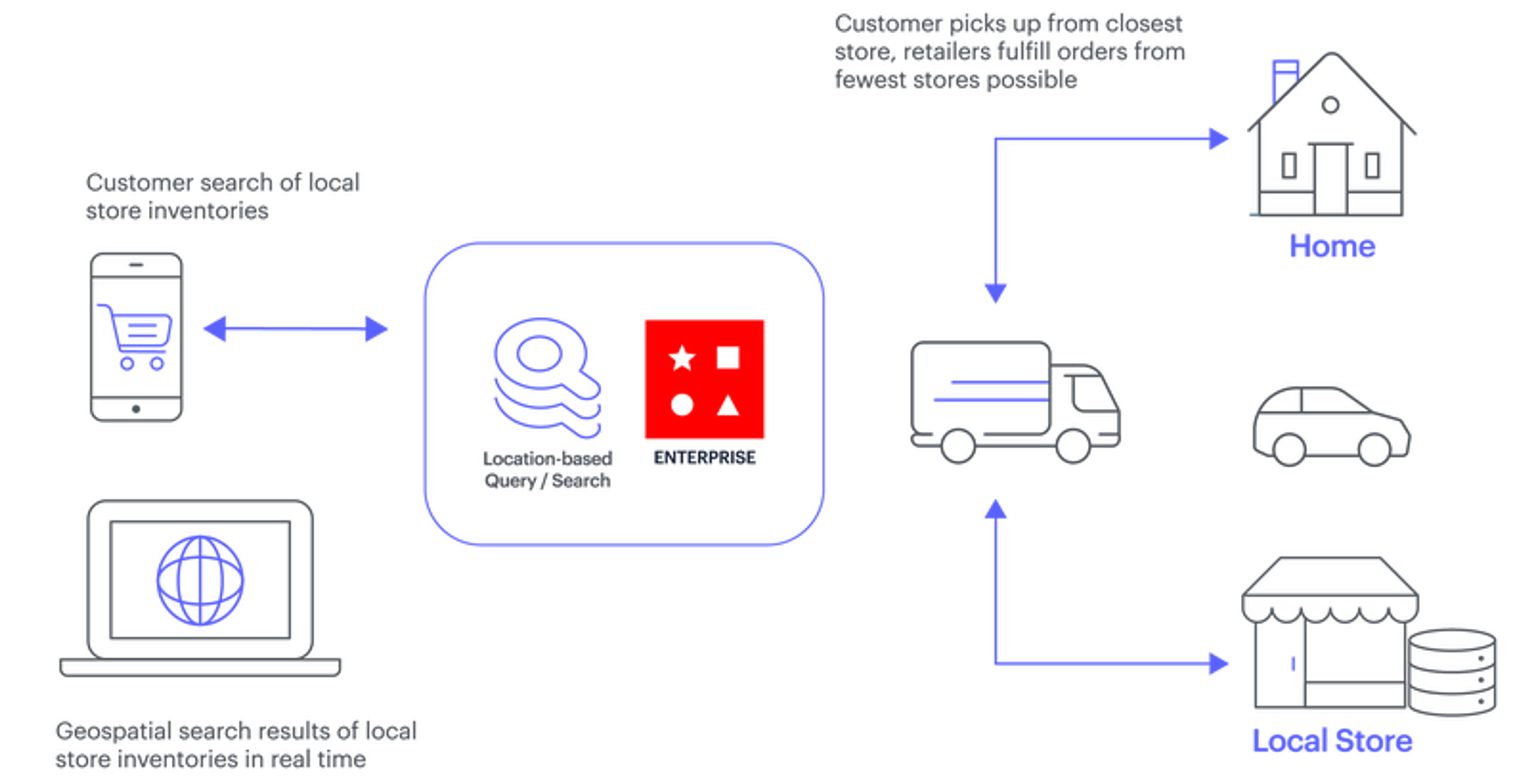We experienced inconsistent responsiveness and instability with our third party inventory management system. By storing our inventory position on Redis, we are able to provide accurate inventory information to our customers while they shop on Ulta.com.
Real-time inventory
Supercharge inventory applications and delight omnichannel customers
Power real-time inventory management systems
Retailers need to ensure their inventory systems deliver results instantly, respond to seasonal demand, and maintain data consistency. Moving inventory data to Redis Enterprise delivers the low latency response, stellar performance, and support for geospatial inventory search that omnichannel customers expect.

Inventory fulfillment is retail’s new competitive front

Customers interact with retailers across multiple channels in different ways—but they want immediate responses no matter what. A shopper might discover a product while browsing on a mobile app, buy online, ship items to their home, and make returns at a physical store.

A seamless omnichannel experience
Omnichannel strategies offer retail customers a unified experience no matter how a purchase is made. Building a real-time inventory management system to support that effort is an important element in achieving that goal.

Lower inventory and fulfillment costs
Many elements in a successful retail organization rely on knowing what you have, where it is, and when it’ll arrive—and having confidence in the accuracy of that information. Redis Enterprise geospatial indexing of inventory data creates efficient delivery and fulfillment options for consumers and retailers.
Turn to Redis Enterprise to deliver real-time inventory management
Redis provides retailers proven real-time inventory solutions that help keep costs down and maximize sales revenue.

Real-time available To promise (ATP)
Creates a resilient, scalable inventory database that delivers real-time results. Synchronize and scale inventory positions in real time with submillisecond response times. Redis Enterprise enhances inventory visibility and customer experience with a single, aggregate inventory view across all locations and channels.

Real-time local store search
Retailers can use the Redis Enterprise geospatial indexing feature to provide consumers the ability to search inventory across stores and regions in real time. Redis Enterprise supports geo-distributed data, allowing retailers to provide more accurate, real-time inventory positions across thousands of stores and warehouses. This provides omnichannel customers convenient fulfillment options and instant access to important inventory information like how far the store is from their current location and how many units are available for pickup.
Redis Enterprise delivers cost-effective performance

Redis Enterprise can elastically scale on-demand with zero downtime. You don’t need to overprovision infrastructure or disrupt service to resize database clusters. That’s important as retailers cope with demanding seasonal events like Black Friday.

Globally distributed real-time inventory systems benefit from the use of Redis Enterprise deployments as an Active-Active, geo-distributed database. You can gracefully handle bilateral inventory updates between stores and enterprise systems without compromising latency or availability.

Redis Enterprise provides multiple data models to store inventory related data and reduce technology sprawl. Devs can choose the data model best suited to their application design, performance, and data access requirements.

Searches need to be speedy—more than speedy, really – when shoppers look for items. With the Redis Enterprise built-in search and query engine, you can rely on instant indexing of new data and search queries that run four times faster than traditional search databases.
Product features

To help retailers meet peak demand, Redis Enterprise performance scales linearly with zero downtime. Redis Enterprise also provides high availability in any scenario with diskless replication, instant failure detection, and single-digit-seconds failover across racks, zones, and geographies.

Redis Enterprise provides multiple models that let you choose the data model best suited for your application’s performance and data-access requirements. Redis modules such as RediSearch, RedisGraph, RedisJSON, and RedisTimeSeries enable Redis Enterprise to work as a search engine, graph database, time-series database, document store, and more—all in a single database platform.

Redis Enterprise can be deployed as an Active-Active, geo-distributed database by using CRDTs (conflict-free replicated data types) in a global database spanning multiple clusters. This ensures data consistency, enables bilateral inventory updates between in-store and enterprise databases, and provides local latency on read and write operations regardless of the number of store databases or their physical distance from each other.

Redis built-in query feature provides full-text search and secondary indexing. In addition to instantly indexing new data, documents and indexes can be co-located—eliminating the need to keep them synchronized across multiple databases.
